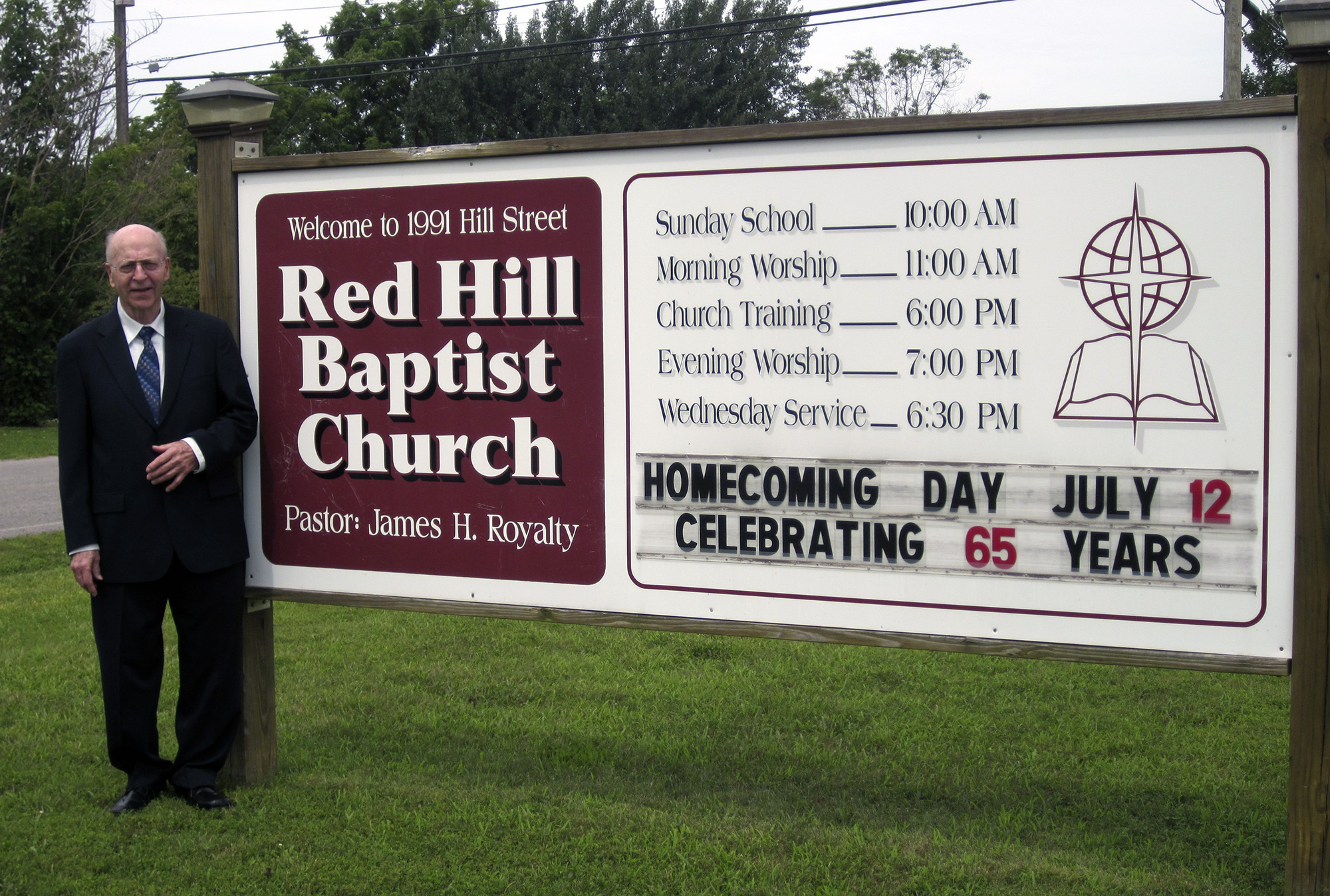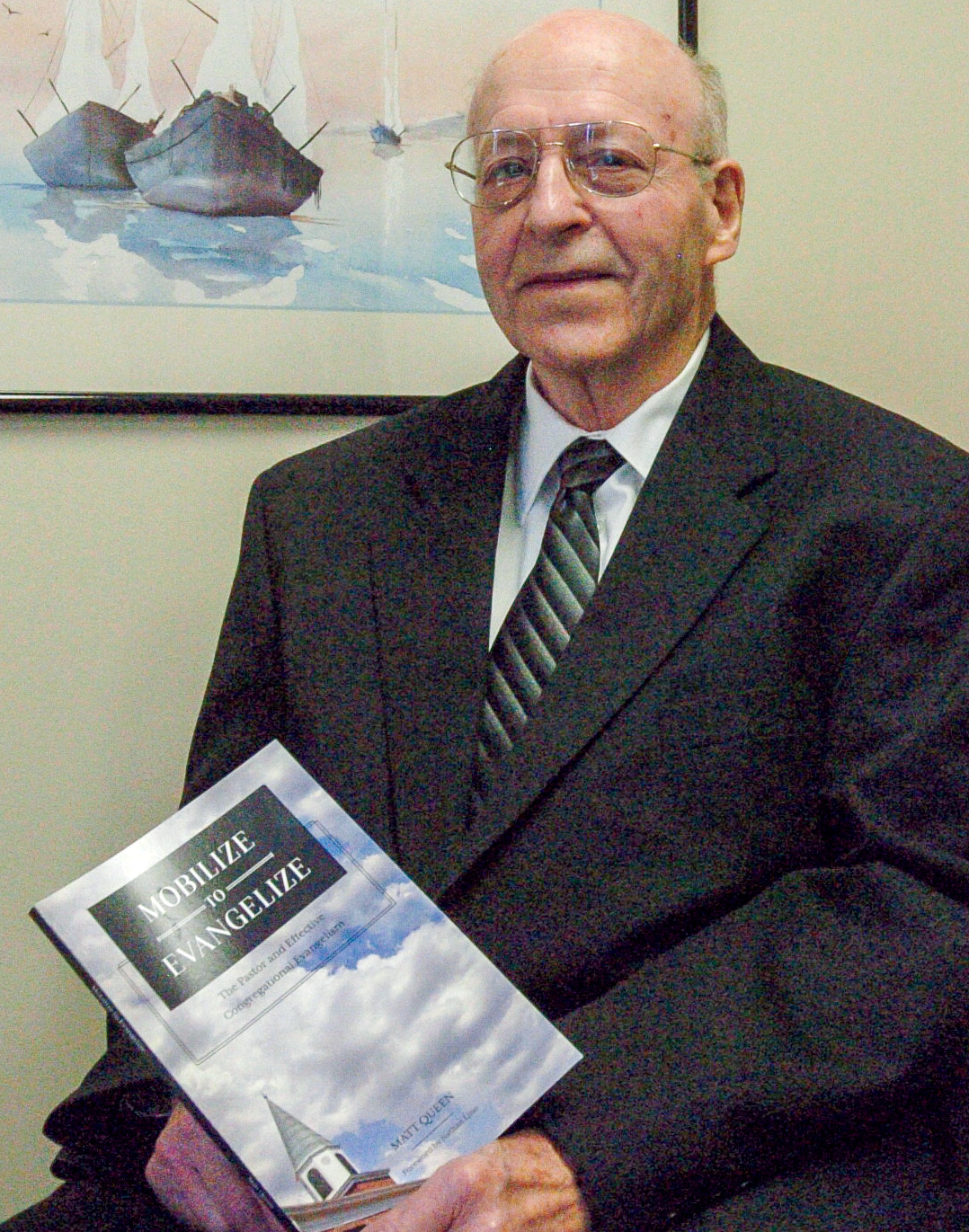
RADCLIFF, Ky. (BP) — Pastoring for 69 years is a rarity today — but very few have the distinction of pastoring the same church for that length of time.
 That is a distinction held by James Royalty, who will complete his 69th year at Red Hill Baptist Church, Radcliff, Ky., in July.
That is a distinction held by James Royalty, who will complete his 69th year at Red Hill Baptist Church, Radcliff, Ky., in July.
He began working as a printer since his father had a small print shop. At one time he inquired about a position with the Kentucky Baptist Convention’s (KBC) Western Recorder in the days of “hot metal” printing. He and his family started a newspaper in Radcliff, The Sentinel, which is still in family hands today.
It was at a KBC annual meeting that he decided to accept a call to preach the Gospel — a call he had struggled with for five years. “I thought that I couldn’t do it, but I went to Georgetown College and worked my way through there — it took me seven years because I worked while I went to college,” the 90-year-old pastor recalled.
“In my calling, I said I was not a preacher, but where God wants me I’ll go, and I’ll stay as long as He wants me to stay,” he noted. “I had four opportunities to leave Red Hill, but I turned them all down. After all, the Lord put me there to start with. I was needed there.” He said he has no plans to retire, but to continue “until the Lord calls me home.”
He has remained as pastor in the spite of some health challenges. In 2010 he had a heart attack, then in 2015 suffered a fall, which was followed by a stroke a month later. He was in and out of the hospital for about two weeks.
“I felt like I was needed and I stayed with it. I remember thinking — if it’s 10 years or 20 years or 50 years, that’s left up to the Lord.”
He preached one of the first messages at Red Hill, which was a mission of Vine Grove Baptist. He was called as its first pastor in July 1950. Not only was he the church’s first pastor, but it was his desire to hold a series of revival services in the Red Hill community that spawned the mission work.
The services in those early days were held in an old, borrowed Army field tent. Vine Grove supplied homemade slat benches and an old Army pump organ was brought in to provide the music. Royalty, still in school at Georgetown, traveled to Red Hill each Sunday to preach. The planting church paid for his weekly trips to Georgetown, and the mission was instructed to incur no debt.
The mission was given a one-acre lot, and construction on a basement building measuring 19-feet by 30-feet began.
 While that work was underway, services continued in the tent. But on a snowy December day in 1950, when Royalty drove in from Georgetown he found the tent had been blown down. The members had to repair the borrowed tent in order to turn it back in, and that provided the impetus to move to the basement building, which only had a mud floor, walls and a center support girder on posts. A pot-bellied stove that had been used in the tent was brought in. Construction on the basement was completed in the next few months, then work on the upstairs began and was completed in 1951. The mission was organized into a church in 1952 as part of the Severns Valley Association.
While that work was underway, services continued in the tent. But on a snowy December day in 1950, when Royalty drove in from Georgetown he found the tent had been blown down. The members had to repair the borrowed tent in order to turn it back in, and that provided the impetus to move to the basement building, which only had a mud floor, walls and a center support girder on posts. A pot-bellied stove that had been used in the tent was brought in. Construction on the basement was completed in the next few months, then work on the upstairs began and was completed in 1951. The mission was organized into a church in 1952 as part of the Severns Valley Association.
Because so many people needed transportation, Red Hill became one of the early churches to start a bus ministry, resulting in more than 40 people being served, in addition to a few who were given transportation to other churches.
More land was purchased and the church moved to its present location at 1991 Hill St., dedicating a full-service basement facility Nov. 12, 1961. Ten years later, construction of an auditorium began. It was dedicated July 9, 1972.
Red Hill has a strong legacy in missions giving. It has been the sponsor of a Laotian ministry and a Spanish ministry, and members have done volunteer mission work in Kentucky and outside the U.S. It sends 13 percent of all undesignated gifts to the Cooperative Program and 4 percent to the Severns Valley Association.
The pastor offers advice to younger pastors.
“Find the Lord’s work and stay with it,” he said. “A problem today is that churches won’t support them so they can take care of their family. For some, it’s not that they particularly want to move, but the churches don’t support them to make a living.”













